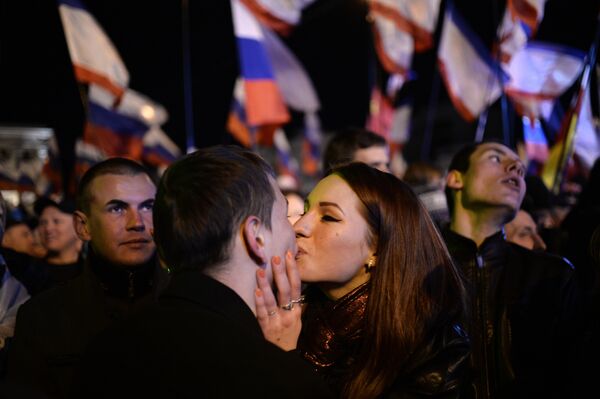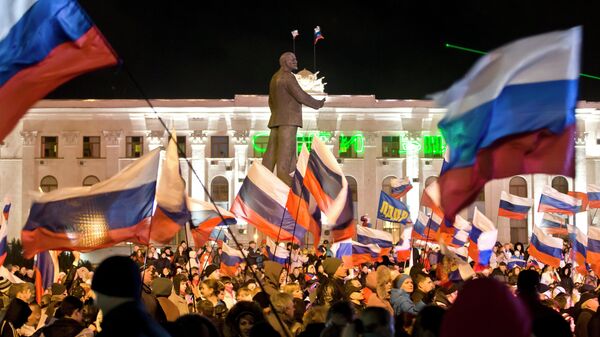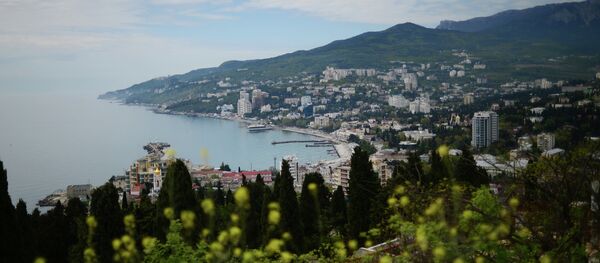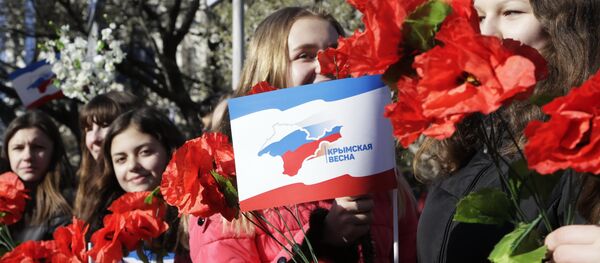MOSCOW (Sputnik) — On February 22, 2014, there was a power shift in Ukraine that had the attributes of a coup d'etat. The Ukrainian parliament, the Verkhovna Rada, ousted then President Viktor Yanukovych from power, changed the constitution, and set new presidential elections for May 25.
On February 23, 2014, a Verkhovna Rada resolution appointed speaker Oleksandr Turchynov as acting president.
The coup and the rise to power of a new anti-Russia government, triggered rallies in cities in Ukraine's south and southeast in defense of the Russian-speaking population, with many waving Russian flags. In Crimea and the city of Sevastopol, the rallies evolved into a strong pro-Russian movement.
The following day, Volodymyr Yatsuba, head of Sevastopol's city administration, announced his resignation.
The city council voted for the creation of an executive committee headed by Alexei Chaly. Since February 24, 2014, the city residents have been holding rallies in the city center in support of Chaly. Ukrainian military units have also been picketed with appeals not to turn weapons on the people.
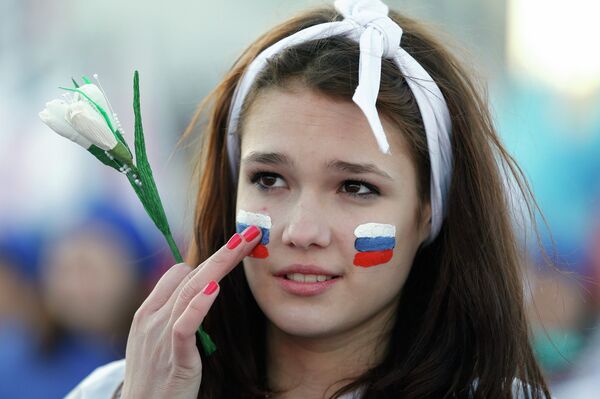
On February 25, 2014, pro-Russian Crimean residents launched an open-ended rally outside the Supreme Council building demanding that legislators not recognize the new leadership that had come to power after riots and unrest in Kiev.
On February 26, 2014, Crimean Tatars who supported the regime change in Ukraine also gathered outside the parliament building. The two groups of protesters clashed, which resulted in 35 people being injured.
In the early hours of February 27, 2014, the Russian-speaking population’s self-defense forces occupied the buildings of the Supreme Council and the Council of Ministers of Crimea.
On February 27, 2014, the Supreme Council of Crimea appointed Sergei Aksyonov, leader of the Russian Unity Party, prime minister.
The Crimean Supreme Council dismissed the government of the autonomous republic, and on February 28, 2014, a new Cabinet of Ministers was formed.
In the early hours of March 1, 2014, unidentified armed individuals attempted to seize the buildings of the Supreme Council and the Council of Ministers of Crimea.
On March 1, 2014, Prime Minister Sergei Aksyonov said at the new Cabinet's first meeting that he had decided to appeal to Russian President Vladimir Putin for help in maintaining the lawful constitutional order in Crimea.
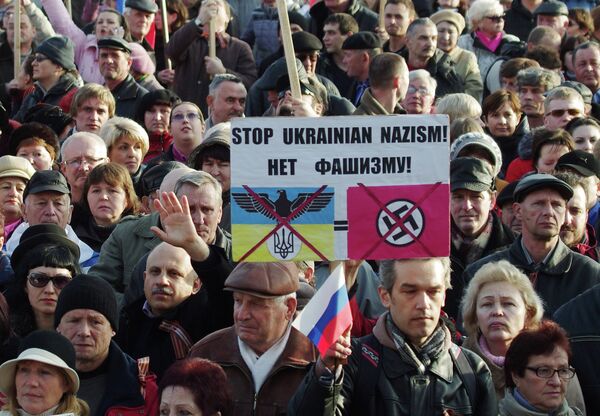
On the same day, Putin addressed Russia's Council of the Federation for authorization to use Russian military forces on Ukrainian soil in the Autonomous Republic of Crimea, until the social and political situation in the country normalized. The initiative was unanimously supported, and the authorization came into force.
The Crimean authorities also decided to speed up the referendum and set it for March 30, 2014.
On March 17, the Supreme Council of Crimea on the basis of the referendum results passed a resolution on the independence from Ukraine. The Crimean parliament also made a proposal to Moscow on the accession of Crimea to Russia.
